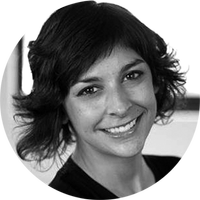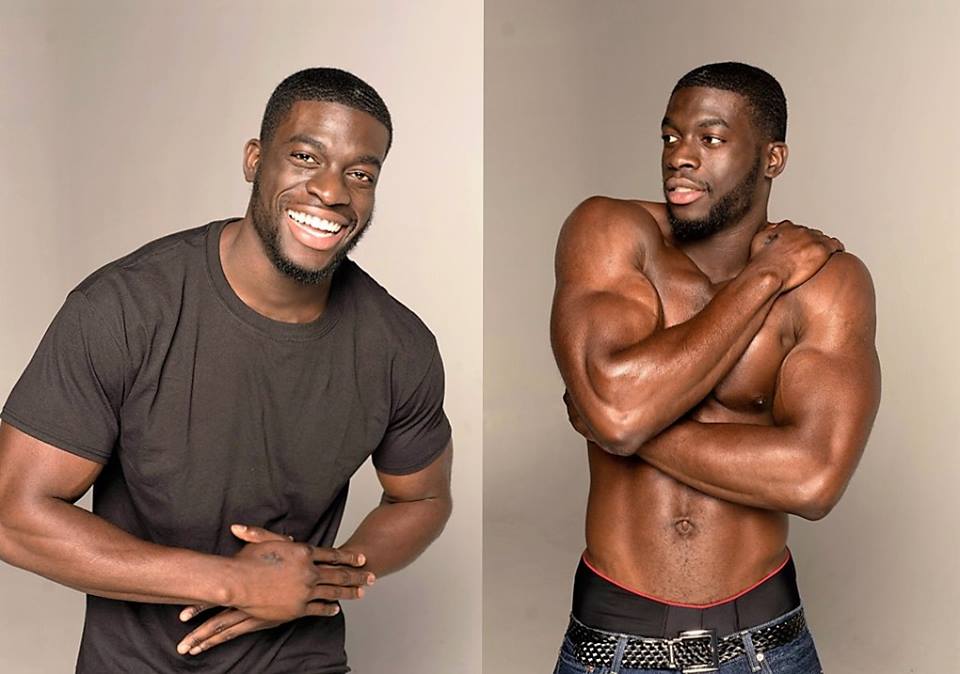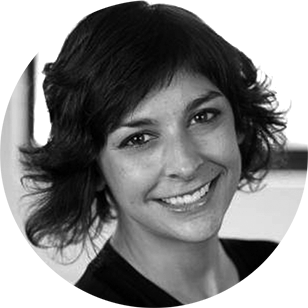This modeling agency is putting veterans on the runway
What do models and veterans have in common? A lot, actually.


A free daily email with the biggest news stories of the day – and the best features from TheWeek.com
You are now subscribed
Your newsletter sign-up was successful
The military square jawline is as iconic as it is photogenic. Chiseled bootcamp abs are worthy of magazine spreads. And if soldiers can be taught to march, then they can certainly be taught to saunter down the runway.
At least, that's what Jas Boothe thinks. She is the founder of Prowess, the nation's first all-veteran talent and modeling agency. As the only agency of its kind, Prowess specializes in providing veterans the right tools and resources they need to find jobs as professional models. It trains them in modeling basics: how to walk, how to strike poses, how to make the right facial expressions. It also helps provide portfolio photos.
Skim through the Prowess website, and you'll quickly connect the uncanny dots between the military and models. Soldiers boast impressively athletic physiques. Calling someone a "jarhead" is another way of saying they have "perfect cheekbones." It's easy to envision veterans trading their fatigues for camouflage couture.
The Week
Escape your echo chamber. Get the facts behind the news, plus analysis from multiple perspectives.

Sign up for The Week's Free Newsletters
From our morning news briefing to a weekly Good News Newsletter, get the best of The Week delivered directly to your inbox.
From our morning news briefing to a weekly Good News Newsletter, get the best of The Week delivered directly to your inbox.
Boothe never expected to run an agency like Prowess. The disabled Army veteran built her first business after being dealt a particularly rough hand that included a cancer diagnosis, and a home lost to Hurricane Katrina. In her desperation, she was shocked to find no resources existed for women veterans. She decided to take things into her own hands. She founded Final Salute, a nonprofit that connects female veterans with adequate housing. "If you see a problem, find a solution," she says. "As a formerly homeless woman veteran, I never saw myself running a nonprofit." Similarly, she never expected to train soldiers to walk down the runway.
Through her work, Boothe tapped into a community of female veterans with modeling experience. But some were too scared to share their modeling portfolios, and many didn't know how to go about landing a modeling job. Law enforcement? Sure. Defense agencies? Yes. But how does a veteran transition into a modeling role? Meanwhile, Boothe also observed that the fashion industry, with its athletic wear and military-inspired designs, was overlooking the very people who related to the insignia not as swag, but as their livelihood. Boothe envisioned an outlet that could remove the limitations placed upon veterans, a space that reflects their many other talents and interests, beyond their military background.
Boothe teamed up with Denyse Gordon, a veteran support professional. Together, they decided that a veteran modeling agency could help address these unmet needs. So they got to work. They did their research, spending hours on YouTube watching videos of models walking the runway. They figured out that the key was to swing the hips, not the arms. Local modeling experts, photographers, and videographers volunteered to help fill in where their own knowledge of the industry was lacking.
Finally, they were ready to start taking in models. They put out a casting call.
A free daily email with the biggest news stories of the day – and the best features from TheWeek.com
"We didn't think anyone was going to show up," says Boothe. "They showed up in droves."
Today, the program has a roster of about 20 models, and is making waves in the industry: Lord and Taylor, DC Fashion Week, Izavel Varela, and several digital magazines and photography projects have all hired Prowess models. But Boothe admits the industry has a way to go before fully accepting — and recruiting — veteran models. This has nothing to do with the models themselves, she says. "They have what you're looking for," she says. "They'll work just as hard as any other model. They fit the mold. This is a great talent pool that no one has tapped into."
In some ways, Boothe thinks Prowess is "scary because it's new." "The fashion industry might share some of the stigma that other employers have [about hiring veterans]." Research corroborates this sentiment. One study run by the Center of Talent Innovation highlights the difficulties veterans face upon entering the workforce, like false assumptions about their emotional health, political bias, and personality traits. Their skill sets go unnoticed and unutilized. As a result, many veterans downplay their military service upon entering the workforce. They hide their injuries, and they dismiss the community that previously filled their lives with purpose.
With Prowess, those stumbling blocks become pedestals. "We're surrounded by veterans who know what we've been through," says Boothe. While other industries are dog-eat-dog, veterans are not bred that way. Prowess acts as an extension of family, a continued unit of support.
Veteran and Prowess model Sean Dickinson says he found exactly that community. The friendships he forged during his Prowess training continue strong to this day. Sean enjoys photography as a serious hobby, and Prowess — both in theory and in practice — encouraged him to pursue interests outside his military background. He enjoys being on both sides of the camera, he says. He had modeled before Prowess existed, but the agency held open a door for him that otherwise might have swung shut due to his military background.
For still other veterans, the reasons to pursue modeling are deeper. Modeling helps provide a much-needed boost in confidence. "Some of us have been severely injured," says Boothe. These individuals "don't see themselves as beautiful and capable anymore ... But once you make a model up and get them into the modeling zone, and they see the pictures," they rediscover a person they didn't know they still had in them.
Prowess creates an outlet of healing in addition to a form of employment. Take Marissa, a plus size model who lost both her feet in service. Being a plus size model is a challenge in its own right. As an amputee, Marissa faces a double handicap. But that hasn't stopped her from building a portfolio and holding out hope that it will land her a job. "You don't need feet to kick ass," is one of her favorite sayings. "What more inspiring badassery is out there than a woman like Marissa, who pursues her dreams and goals even with all these challenges?" asks Boothe.
At the end of the day, Boothe sees her work functioning in a larger frame. "There was a need, and I found a way to fill it," she says. "Because that's what we do. As providers and supporters, we find a way to make life a little easier for our fellow human race."
Elisia Guerena is a freelance writer living in Brooklyn, New York. Her work has appeared in Popular Science, OkayAfrica, and Paste Magazine, among other publications. She writes poetry and fiction for fun.
-
 Quentin Deranque: a student’s death energizes the French far right
Quentin Deranque: a student’s death energizes the French far rightIN THE SPOTLIGHT Reactions to the violent killing of an ultra-conservative activist offer a glimpse at the culture wars roiling France ahead of next year’s elections.
-
 Secured vs. unsecured loans: how do they differ and which is better?
Secured vs. unsecured loans: how do they differ and which is better?the explainer They are distinguished by the level of risk and the inclusion of collateral
-
 ‘States that set ambitious climate targets are already feeling the tension’
‘States that set ambitious climate targets are already feeling the tension’Instant Opinion Opinion, comment and editorials of the day
